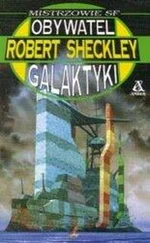The pavement never once yielded beneath his feet. Over there was the First National City Bank; it had been there yesterday, it would be there tomorrow. Grotesquely devoid of possibilities, it would never become a tomb, an aeroplane, or the bones of a prehistoric monster. Sullenly it would remain, a building of concrete and steel, madly persisting in its fixity until men with tools came and tediously tore it down.
Lanigan walked through this petrified world, under a blue sky that oozed a coy white around the edges, promising something it could never deliver. Traffic moved to the right, people crossed at crossings, clocks were within minutes of agreement.
Somewhere beyond the town lay the countryside; but Lanigan knew that the grass did not grow under one's feet; it simply lay there, growing no doubt, but imperceptibly, unusable to the senses. And the mountains were still black and tall, but they were giants stopped in mid-stride, destined never to march against a golden (or purple or green) sky.
This was the frozen world. This was the slow-motion world of preordination, routine, habituation. This was the world in which the eerie quality of boredom" was not only possible; it was inevitable. This was the world in which change, that quicksilver substance, had been reduced to a sluggish and reluctant glue.
Because of this, the magic of the phenomenal world was no longer possible. And without magic, no one could live.
Lanigan screamed. He screamed while people gathered around and looked at him (but didn't do anything or become anything), and then a policeman came, as he was supposed to (but the sun didn't change shape once), and then an ambulance rushed down the invariable street (but without trumpets, minus strumpets, on four wheels instead of a pleasing three or twenty-five) and the ambulance men took him to a building which was exactly where they expected to find it, and there was a great deal of talk by people who stood, untransformed and untransformable, asking him questions in a room with relentlessly white walls.
They prescribed rest, quiet, sedation. This, horribly enough, was the very poison which Lanigan had been trying to throw out of his system. Naturally they gave him an overdose.
He didn't die; it wasn't that good a poison. Instead, he became completely insane. He was discharged three weeks later, a model patient and a model cure.
Now he walks around and believes that change is impossible. He has become a masochist; he revels in the insolent regularity of things. He has become a sadist; he preaches to others the divine mechanical order of things.
He has completely assimilated his insanity or the world's, in all ways except one. He is not happy. Order and happiness are contradictions which the universe has not succeeded in reconciling as yet.







